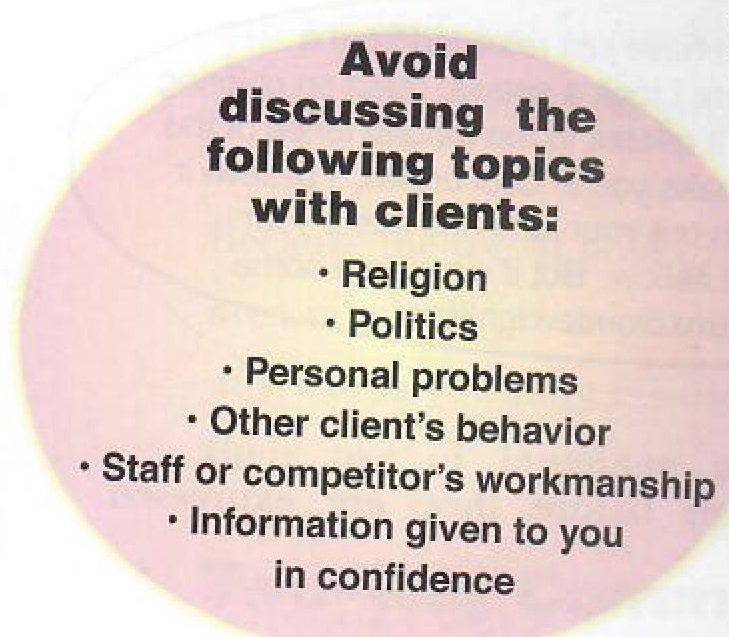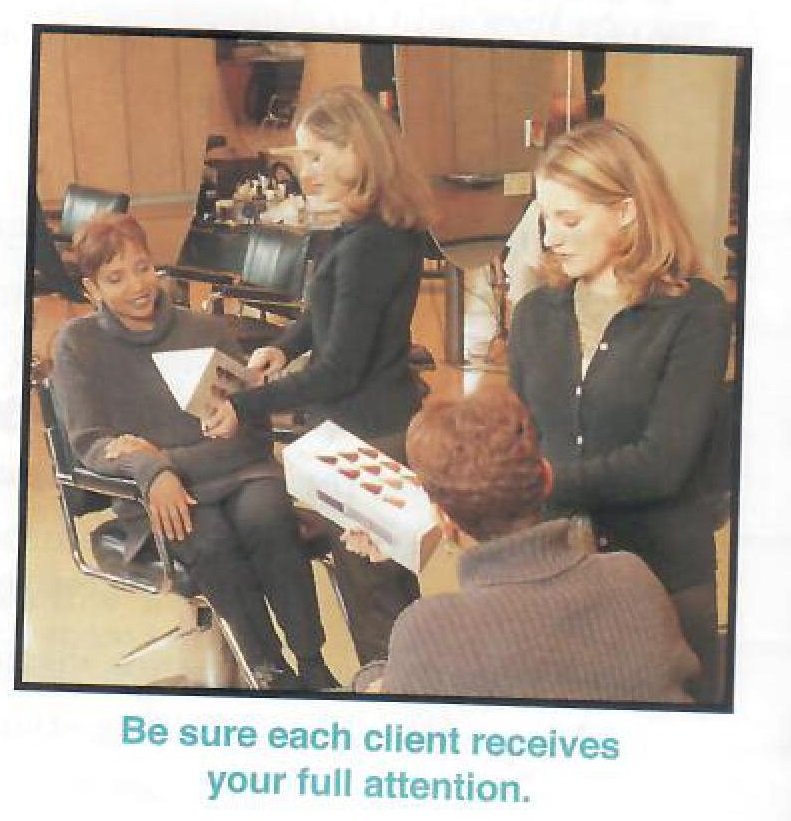Verbal Communication (Voice and Tone)
How you speak is as important as what you’re saying. A well-modulated voice gains greater positive attention than a voice that is unnecessary – and often unattractively – high or shrill. A listener may well “rune out” an irritating voice and then miss the information being shared. Listen to your own voice in various situations. A voice that can carry very harmonious tones in normal conversation may become shrill during excitement. Be certain your voice always reflects the personal image you want to project.
Verbal communication (how you speak) can also influence the meaning of what you say. The tone of your voice, inflection, level, and rate of speech all play an important role in verbal communication.
Grammar
Your language, used correctly, can clearly and beautifully communicate all your thoughts and needs. Used incorrectly, however, the beauty of the language may be marred. Worse still, your level of communication can be impaired.
The use of poor grammar can begin accidentally. as you copy poor speech patterns used by those around you. It can also begin intentionally when you choose to use it to imitate certain peers or to create particular effects. In other cases, once the use of poor grammar has begun, it can become habitual and. therefore, difficult to recognize and correct.

The use of double negatives, certain slang words or words whose true meanings aren’t quite appropriate to one’s messages can all detract from the thought you are attempting to communicate. The listener can be confused by such communication and left with a completely incorrect understanding of the intended message. No professional can afford to misuse language.
Because the use of poor grammar may be habitual and not easily identified by the user. This, too is an area in which you might ask for the help of teachers and friends. Ask people close to you to point out any words you may misuse and speech patterns that aren’t appropriate. Many people have polished their use of language with the help of caring friends, relatives, teachers and/or spouses.
Two – Way Communication
Your success in providing your clients with exactly the service they desire depends on how well you are able to understand and interpret their initial request.
The best way to do this is, first, encourage them to give you enough information so that you perfectly understand their desires. Be a good listener and ask questions if necessary. Second, practice reflective listening by repeating back to them in your own words what they just told you.

When you have finished your explanation, always ask if the client understands what you will be doing and if he/she feels comfortable. Encourage questions. It is important that you are able to communicate comfortably and that you and your client understand each other. Here are several points that will help your communication skills become more effective:
Present a Pleasant Greeting
- Always greet a client by using the last name (Mrs. Brown, Mr. Smith, Ms. Johnson) unless the client offers permission for a first name basis and it is acceptable in the school and/or salon.
- Use a pleasing voice tone that projects 4 your eagerness to offer your services.
Use Tact
- Tact is learning to say the proper thing to a person without giving offense. This skill requires sensitivity.
- Tact is a very important communication skill to use in building an honest professional relationship with your clients.
- It is your responsibility to communicate honestly with the client, without offending.
- Deciding whether your ideas or feelings should be expressed in public or private is considered
- being discreet.
- For example. a client may insist on a certain hair color. which you know will not be flattering, It is your responsibility to tactfully suggest otherwise:

Express Your ideas Clearly
- Think an idea through completely before you talk about it.
- Many good ideas fail because they are not thought through before they are expressed,
Define the purpose of your communication
Before you begin to express your idea, determine the purpose of your communication. Is it to:
- Gain information?
- Change an attitude?
- Seek support?
- Motivate?

Know the importance of your ideas
Be certain that the communication is valuable to others. When speaking:
- Consider the listener’s needs and desires.
- Ask yourself…How will the listener benefit by what I’m saying?
- Be prepared to show visual representation of the ideas being suggested to the client by using style books. color charts, photographs, etc.
Be aware of your environment
- Be sure the timing is right for your communication,
- Decide whether your ideas or feelings should be expressed in public or private.
- Decide who should be the recipient of your communication.
Watch your overtones
- An overtone occurs when your tone of voice, inflection, expressions and reactions do not match your words. Example: You say, “I’m so happy to see you today.” but you are not smiling or extending your hand in greeting.
- Be sure you are communicating the idea you want to convey.
- Be careful that your overtones aren’t saying something entirely different from the words you speak.
Consult with others when necessary
- Be certain you have all the facts and information available.
- If you’re in doubt, consult with others to gain new insights, ideas, opinions…and support.
Be a good listener
- Concentrate on understanding others first.
- Listening is the important key to good communication.
- The most successful business people and the best communicators are those who have learned to listen.
To be sure Vou succeeded in communicating, take the time to ask questions, encourage others to express their opinions, your success in communicating your thoughts is strongly related to how well you communicate your professionalism, Everything you speak and do should convey that you’re a professional.

For example, the topics you select to discuss with your clients should be chosen with care. Avoid controversial topics. Too many salon stylists rely on the weather, current movies and famous personalities to provide topics to discuss with clients. As a salon professional, you’ll want to focus your conversation on your client’s lifestyle and beauty needs and then completely provide the beauty care direction that will help him or her meet those needs. A client’s very active life. for example, would probably be well served with a short. easy-to-care-for style. You might additionally, recommend a perm to further reduce time spent caring for his/her hair at home. You’ll use particular products on each client for particular reasons. Explain what you’re using and why. Your client will expect to receive your full attention while in your chair and to receive the full benefit of your professional expertise. Be sure that each client receives what he/she needs and your success will be guaranteed.

